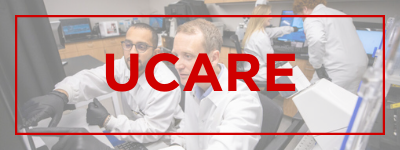UCARE: Undergraduate Creative Activities and Research Experiences

UCARE: Research Products
Date of this Version
Spring 2016
Document Type
Poster
Citation
University of Nebraska-Lincoln Research Fair, Lincoln, Nebraska, April 2016.
Abstract
Background and Objectives: The prevalence of alcohol misuse on college campuses is a considerable problem. Depression is commonly found to be related to increases in alcohol related harm; however, not frequently found to be directly related to increases in alcohol use. This pattern suggests that there are factors related to depression that exaggerate alcohol problems other than the association between depression and the amount of alcohol used. This study examined the relationship between depression and alcohol related harm in college binge drinkers, focusing on emotional, behavioral, and cognitive variables believed to mediate the association. The roles of alexithymia, impulsivity, and negative expectancies of alcohol were specifically examined as potential mediators. Methods: This data was a subset of a larger study that examined college students who had broken the universities dry campus policy and were referred to an alcohol skills training program (n = 373). This subset was among those who completed all measures of interest (n = 198). Demographics were age (m = 18.92, sd = 1.029), freshman (63.6%, n = 126), male (61.6%, n = 122), White (92.4%, n = 183). Results: With regards various measures of alcohol related harm, a multiple mediation analysis revealed that a paths from depression to the mediators were significantly related; however, only negative expectancies mediated the relationship between depression and alcohol related harm. Discussion and Conclusion: These results emphasis the important role expectancies play in alcohol related harm, and provides support for the importance of monitoring expectancies of binge drinkers as part of intervention efforts. Scientific Significance: The findings contribute to the existing body of literature on the relationship between depression and alcohol related harm, and alcohol related harm in college students.


Comments
Copyright (c) 2016 Andrew Brauer McGrath and Dennis McChargue